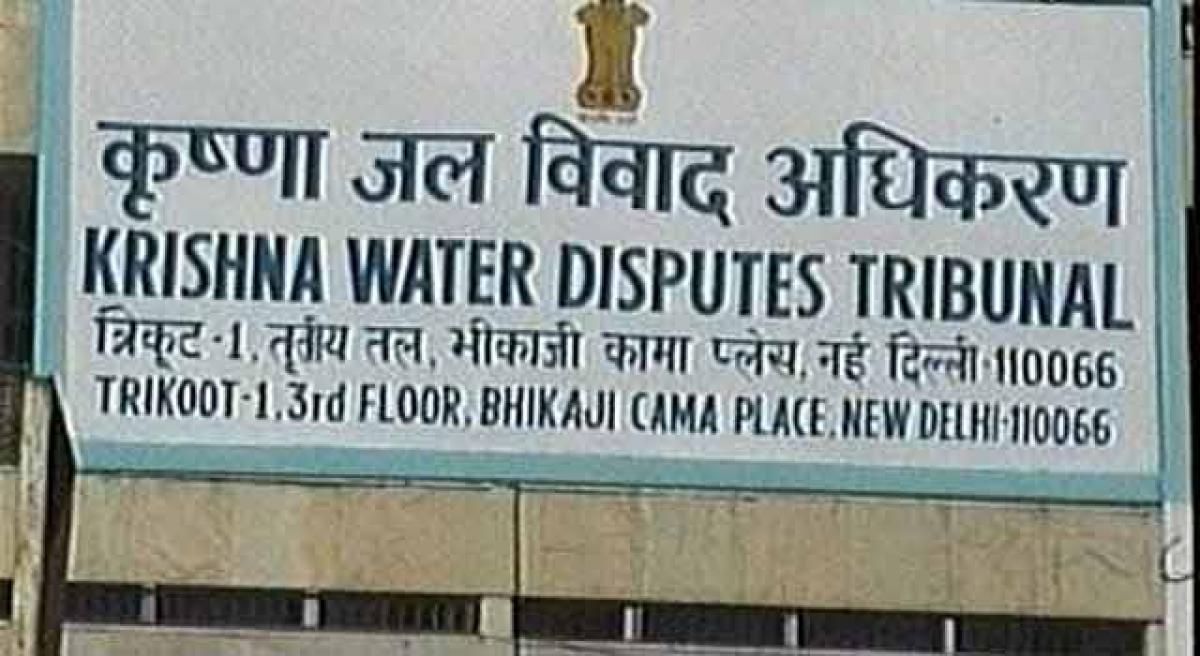Live
- ‘Get Set, Grow Summit 2024’ Focuses on Digital Detox for Families
- Stokes motivates his team to put in extra effort, says England pacer Potts
- From overcoming setbacks to leading India in U19 Women’s Asia Cup, Niki Prasad's amazing journey
- Driving Enterprise Security: Inside Venkata Reddy Thummala’s Leadership Journey
- Constitution debate: PM Modi hails 'Nari Shakti'; makes strong pitch for 'United Bharat’
- Abhijeet Bhardwaj: Revolutionizing Enterprise Analytics with Innovation and Expertise
- Bihar: Inquiry initiated against principal who went to buy veggies during school hours
- Press Sri Lankan Prez for release of Indian fishermen: TN Cong MP to EAM Jaishankar
- TN: DMK postpones executive meet due to heavy rains & Parliament session
- Porous silicon oxide electrodes can fix durability issues in batteries: Researchers
Just In

Senior Counsel of the Andhra Pradesh government, A K Ganguly, continued his arguments referring on Section 85 of the AP Reorganisation Act in the Krishna Water Disputes Tribunal-II here on Monday claiming it was imperative to make an appraisal of any proposal for construction of new projects on Godavari and Krishna rivers and undertake a study to assess the negative impact on the projects already
New Delhi: Senior Counsel of the Andhra Pradesh government, A K Ganguly, continued his arguments referring on Section 85 of the AP Reorganisation Act in the Krishna Water Disputes Tribunal-II here on Monday claiming it was imperative to make an appraisal of any proposal for construction of new projects on Godavari and Krishna rivers and undertake a study to assess the negative impact on the projects already completed or taken before the appointed day as mandated in the section.
Referring to the XI schedule of A P Reorganisation Act, he argued that the six projects indicated in the Act under para 10, Telugu Ganga Project have already been considered by this tribunal and were allocated 25 tmc ft and the existing water sharing arrangements among the remaining five projects shall continue. Therefore, these were to be considered by this tribunal for allocation out of the remaining water, he said.
Referring to Section 90 of the Act, he argued that this section was a standalone provision regarding Polavaram Project and the Parliament by its legislative powers inserted the section even though it did not pertain to both the States and argued that Sec 89 was also is such a provision akin to the Section 90.
He argued that the scope of the Section 89, in its plain language, did not restrict to two States only as otherwise Parliament would have said so. Exercise of Project-wise allocations could be restricted to only truncated part of the river system but did involve all four States. Referring to Sub-section b of Sec 89, he argued that to make project-wise releases there had to be project-wise allocations.
He further argued that explanation to clause of Sec. 89 is not a substantive enactment but it did clarify that project-wise awards shall be binding on both new States and by implication involves the other States as well and it is a provision which is binding in nature. The following points were also raised by him to emphatically state that the re-evaluation must taken into account all the four States and all the available water:
Referring to the various observations by KWDT- I and KWDT-II, he argued that the whole Krishna River basin has to be considered as single hydrological unit. Unless, River Basin is considered as single unit, it would not be possible to determine operative protocol in the event of deficit. It is necessary that all the projects shall be integrated to regulate flows and then only operational protocol can be evolved.
This tribunal is mandated to make project specific allocations if not already done. He stated that only the projects under Tunga Bhadra dam and west ward diversion under Koyna and Tata Hydels are project specific and rest are enbloc. This has been affirmed by Hon'ble Supreme Court in O.S.2 of 2000 (Almatti Case)
Senior Counsel while referring to the various case laws, explained the need to involve all the four States in the present reference to make
He argued that Parliament has suo motu now made Terms of Reference in the Tribunal and Central Government has no role in deciding the scope of the Section 89.
While referring to the Punjab settlement (Ravi Beas Tribunal) Act, Parliament has inserted a new provision as Clause 14 of ISRWD Act., without making any reference to Section 3,4 and 5 of the Act.
With respect to the submission of Karnataka and Maharashtra that the exercise if made to all the four States would affect the adjudications already made. Ganguly submitted that it would not affect the adjudication made and made submission based on the Judgement of Supreme Court in Mullaperiyar Dam Case.
The Tribunal is set to continue hearing the arguments tomorrow.

© 2024 Hyderabad Media House Limited/The Hans India. All rights reserved. Powered by hocalwire.com







